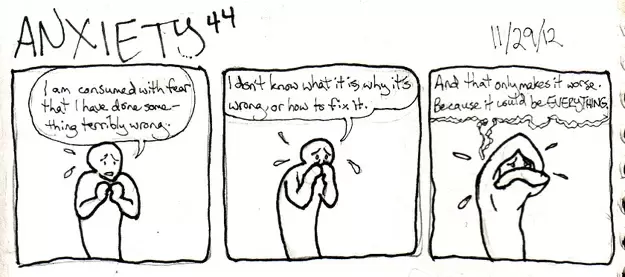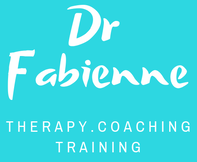 Since my last post on anxiety, the clients I see online and other people I have been speaking to have been reporting that their anxiety increases when the news comes on, when they talk about COVID-19, when they think about their elderly relatives who are vulnerable with underlying conditions etc etc etc. Whilst we live in very uncertain times and it is natural to feel some degree of anxiety and worry, understanding what is going on is, as ever, the best way to start regaining control. So, over the next few days and weeks, I will be posting about anxiety and what you can do about it. So, what is anxiety? Anxiety is a natural process that is intended to ensure your survival in the face of danger. Let’s face it, if we are faced with a lion that is eyeing us up for lunch, we do want to have a warning mechanism that tells us, without our having to do anything, that danger is present and we need to fight the danger or run away from it (the fight or flight response). So, when faced with danger, the amygdala (the fear centre of the brain) triggers an all-systems alarm that places our bodies into a state of high alert within a split second of perceiving the threat. This state of high alert comes with a set of physiological, behavioural and psychological reactions that occur all at once. Within seconds of perceiving a threat, our bloodstream is flooded with adrenaline (epinephrine) and causes physiological changes. You may notice your heart rate increasing, your breathing getting shallow and more rapid (some people can experience chest pain or discomfort), your skin gets cooler and your muscles tense as blood is redirected away from non-vital areas to vital ones in readiness for action (running or fighting), your pupils dilates (for better vision), you sweat more (to keep you cool in case you need to run or fight), you may shake or tremble, feel dizzy and nauseous and your immune system and pain response are suppressed (to keep the body moving even if it is injured). Hence why some people can walk on broken limbs or accomplish incredible feats in that state). All non-essential bodily functions are interrupted. As digestion stops, your mouth goes dry as saliva production stops and your bowels and bladder may need to be emptied. Behaviourally, there tends to be three may responses: fight, flight or freeze. And these tend to be instantaneous. The urges that comes with these reactions can be an intense desire to run away or one of aggression or milder versions such as yelling, snapping and pacing. Psychologically and emotionally, you experience fear, worry and apprehension and repetitive, negative thinking. Worry is useful if it leads you to problem-solve and do what you can do about the thing that worries you. It is not useful, if it allows the negative thinking to spiral out of control into fear about everything going wrong. Taking action towards solving the problem, in whatever small way, helps worry and anxiety abate, especially if you find that you are not able to think straight. Indeed, critical thinking takes a back seat as the amygdala does not want you rationalising and thinking how beautiful that lion is when it is about to eat you alive. All systems go towards survival! Anxiety is fear. Fear of the unknown. It is usually a fear about the future, about something that hasn’t happened yet. The kicker is that the alarm can be sounded even if there is not an actual threat to our safety, as the brain does not distinguish between an actual danger and a perceived one (many people have felt these very symptoms when going for job interviews, thinking about the next meeting with the boss or when sat at the computer worrying about that presentation they had to give). Think of it as a car alarm going off when no one is trying to steal the car! The key thing to remember is that all these symptoms and reactions are normal. This is important, as the fear of the symptoms themselves can actually cause more anxiety. Of course, you may want to be checked by a medical doctor to be sure there is no underlying conditions, if these symptoms are highly disruptive. However, if they appear and worsen when you are watching the news, talking about the pandemic and the like, worrying about the future, then know that these sensations are normal and will not harm you. It is also useful to know that the amygdala that kicked off this whole alarm system within a split second of perceiving the threat is also responsible for storing memories of the threat so that it can trigger the alarm whenever the threat is perceived again. In uncertain times such as these, our brains are trying to make sense of a big unknown and alert us to a possible threat (yes, there is a danger but many of us are not at risk of immediate mortal danger). So, when we watch the news again and again and feed our brains the doom and gloom, we reinforce the pattern. Avoiding the temptation to feed our brains doom and gloom, which fuels the cycle by providing it with more juice (adrenaline) is a positive step. The news (especially TV and other visual news) is designed to be sensationalist and create big reactions. Changing the physical reactions by moving the body (go for a walk, dance, garden, take deep breaths (more on that in a later post) etc) can also help switch us out of those symptoms. Identifying specifically what you are worried about and acting on it can also help you to begin to regain control. The good news from all of this is that we know that anxiety is a learned response and what has been learnt can be changed!
1 Comment
|
AuthorHi I'm Dr Fabienne and I believe in the capacity we all have to change our circumstances, given the right help, tools and inspiration! Archives
May 2024
Categories |

 RSS Feed
RSS Feed